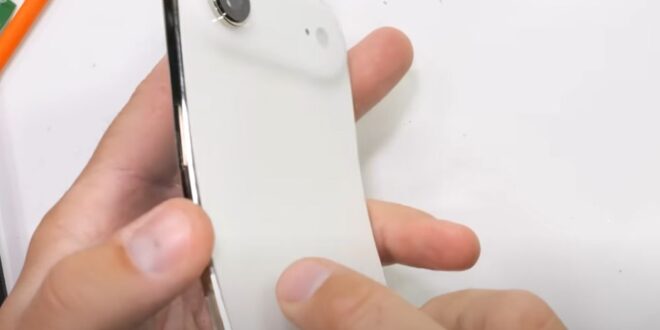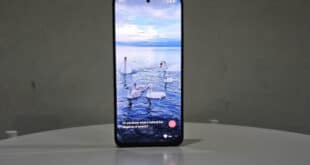The iPhone Air was just recently launched many have questioned its durability due to its impossibly thin build, making an iPhone Air durability test important.
A recent durability test by YouTube channel JerryRigEverything which was hosted by Zack Nelson, shows how durable the thinnest iPhone would be, and the point it would eventually break.
The video, titled “iPhone Air Durability test — I AM SHOCKED”, puts the iPhone Air to the test, examining its scratch resistance, bend-ability, and fire resistance.
Building on Titanium and Ceramic Shield
The video confirms that the iPhone Air’s remarkable durability is a result of its materials and build.
The phone features a mirror-finished grade 5 titanium frame, which is lighter and stronger than other metals.
This titanium frame is crucial to maintaining the structural integrity of the incredibly thin device, which measures just 5.6 mm thick.
The front of the phone is protected by Apple’s new Ceramic Shield 2, which is touted as three times more scratch-resistant than previous versions.
The video’s scratch test confirms this claim, with the screen showing no visible scratches at a level six on the Mohs scale, and only very faint marks at level seven.
This represents a significant improvement in scratch resistance.
The back of the phone features a soft-etched glass panel with a smooth, shiny Apple logo in the center.
Jerry also did a fire test on the display, which shows that the screen’s oleophobic coating appears to be unaffected by the flame.
Passing the Ultimate Durability Test
The iPhone Air’s thinness initially raised concerns about its ability to withstand bending.
The video’s bend test, however, produced a shocking result.
Zack notes that titanium is nearly twice as rigid and 60% more elastic than aluminum, meaning it can bend and then snap back into place and his statement was proven when he tested the phone by benting from the front and back.
However, despite the iPhone Air showing some curvature, it returned to its original flat state as Jerry noted, demonstrating its structural integrity.
Jerry then took the bend test a step further by using a crane scale to measure the exact force required to break the device.
The phone was able to withstand a staggering 216 pounds of pressure before the back glass finally shattered, while the screen remained on, likely still usable.
Conclusion
In conclusion, the iPhone Air’s titanium frame, combined with the new Ceramic Shield 2, makes it a remarkably durable device.
It maay be thin, but it had passed the scratch, fire, and bend tests with flying colors, proving that its impossibly thin design does not compromise its strength.
To watch the full video of Jerry’s test, check the video below.
 PhoneSentral Tech in Simplicity
PhoneSentral Tech in Simplicity



